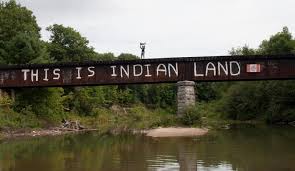A survey of art history from the Classical era in Egypt, Greece, and Rome to the Late Middle Ages (15th century) in Western Europe. The course will give attention to the relationship of art and architecture to other facets of social, religious, cultural, and intellectual history. Formerly TFA-2020
- Teacher: Rachel Baerg
This is a history course about conservative thought and movements in the United States and Canada. It will explore the roots of the Republican Party, the Progressive Conservative and Conservative parties of Canada, and examine political philosophies like libertarianism, neo-conservatism, social conservatism, and Red/Blue Toryism, and movements such as Young Americans for Freedom, the Moral Majority/Religious Right, the Tea Party, Social Credit and the Reform Party. Regionalism will also be considered, especially the fertile conservative soil of Western Canada and the American Sun Belt. Possible topics of study may also include social justice, environmentalism, gender, religion, and culture.
- Teacher: Brian Froese
The contemporary cultural resurgence and political organizing of
indigenous peoples invokes new perspectives on Canadian history. This
historical survey will explore pre-contact social organization,
colonialism and resistance, treaties and land claims, reserves and
residential schools as structures of social control, evolving public
policy (e.g. Indian Act), Native identities, struggles for
self-determination and the rights of revolution

- Instructor: Shelisa Klassen
A study of the development of Canada from its colonial origins to the completion of national and transcontinental unification. Emphasis is on French Canada, Indian-European cultural contact, regional life and social organisation, impact of colonialism, and the creation of a national state.
- Instructor: Shelisa Klassen
This course is an examination of the post-World War II decades of North America in its political, economic, social, and intellectual contexts. Individuals that may be studied include Elvis Presley, Lester Pearson, Ronald Reagan, Tommy Douglas, Martin Luther King Jr., Betty Friedan, Marshall McLuhan, Rachel Carson, Charles Manson, and Pierre Trudeau. Topics may include social revolutions (Quiet Revolution, Civil Rights), politics (Cold War, Great Society, Medicare), body and technology (‘The Pill’, vaccines, organ transplants), youth protest (Beat, Berkeley), and consumer culture.
- Instructor: Brian Froese